Роберт Бюттнер - Orphan's Destiny
Здесь есть возможность читать онлайн «Роберт Бюттнер - Orphan's Destiny» весь текст электронной книги совершенно бесплатно (целиком полную версию без сокращений). В некоторых случаях можно слушать аудио, скачать через торрент в формате fb2 и присутствует краткое содержание. Жанр: Боевая фантастика, на английском языке. Описание произведения, (предисловие) а так же отзывы посетителей доступны на портале библиотеки ЛибКат.
- Название:Orphan's Destiny
- Автор:
- Жанр:
- Год:неизвестен
- ISBN:нет данных
- Рейтинг книги:3 / 5. Голосов: 1
-
Избранное:Добавить в избранное
- Отзывы:
-
Ваша оценка:
- 60
- 1
- 2
- 3
- 4
- 5
Orphan's Destiny: краткое содержание, описание и аннотация
Предлагаем к чтению аннотацию, описание, краткое содержание или предисловие (зависит от того, что написал сам автор книги «Orphan's Destiny»). Если вы не нашли необходимую информацию о книге — напишите в комментариях, мы постараемся отыскать её.
Orphan's Destiny — читать онлайн бесплатно полную книгу (весь текст) целиком
Ниже представлен текст книги, разбитый по страницам. Система сохранения места последней прочитанной страницы, позволяет с удобством читать онлайн бесплатно книгу «Orphan's Destiny», без необходимости каждый раз заново искать на чём Вы остановились. Поставьте закладку, и сможете в любой момент перейти на страницу, на которой закончили чтение.
Интервал:
Закладка:
She spun her head toward me. “Jason!” She smiled, then jerked her head at Jude. “Howard wants to measure his reaction times. The Army gave me alternatives. Bring Jude down here or they would.”
I raised my eyebrows. “Howard strong-armed you?”
She shook her head. “Howard wouldn’t strong-arm a goldfish. It was Space Force. Anyway, it’s warm down here.” She hugged herself. “Well, not like home.”
Even Munchkin’s home, Egypt, wasn’t warm since the war. I pointed at the catch game. “What’re they trying to prove?”
She glowered. “That he’s different because he wasn’t born here.”
Howard stepped alongside us. “You make it sound like Apartheid.”
“It is.” Munchkin pouted. If Munchkin ever got U.S. citizenship, which her son had because his father was born here, I doubted she would register Republican.
I changed the subject. “Howard, when do you want to download Jeeb’s data?”
He shrugged. “You brought him to Florida? Well, bring him by when it’s convenient.”
I turned to Munchkin. “See? I’m letting them examine my baby with no fuss.”
She rolled her eyes and muttered in Arabic.
I asked Howard, “Speaking of examining strange machinery. Where’s The Football from Ganymede?”
He said, “Space Force R and D still has it.” He frowned. “They’ve been studying it like they were going to cut the Hope Diamond. They start intrusive testing in a week.” He circled his finger at us. “We’re all invited. Ceremony to demonstrate spin-off technology gains from the war.”
I snorted. “Space Force will be lucky if they don’t blow themselves into rutabagas.” In the Projectile days, Howard always used to complain that the biggest fragments he recovered for study were the size of rutabagas. Whatever they were.
Munchkin thrust Jude at me. “Here. Your robot doesn’t need changing. Your godson does.”
I never made that comparison again.
Howard took us all to dinner and spent most of the night watching Jude eat.
My eyes were gritty from a long day when I drifted, alone, through the lobby of the Ritz-Orlando.
The night concierge called across lavender carpet, “General Wander? Holo!”
He pointed across the silent room at a holo booth with a light flashing above the door.
I cocked my head at him and called back, “Who is it, Rudy? Holo calls cost The Brick.”
He motioned me over, then leaned across his curlicue-legged desk. “General, nobody uses that expression in polite society anymore. Today, it refers to”—he dropped his voice—“constipation.”
Every day I learned again that five years in space and training had left me out-of-touch.
I nodded.
He nodded back, toward the booth. “Sir, the gentleman has been a guest here. You’ll recognize him.” Ritz guests paid for privacy and discretion and got it.
The man in the booth wore a flowered shirt, untucked over shorts, and sandals. He held a stemmed glass in one hand and I recognized him from someplace, too.
“Jason?” He smiled through a salt-and-pepper full beard that covered a fleshy face. “Aaron Grodt.”
Ah! I nodded. It might seem strange that anybody wouldn’t recognize Aaron Grodt, but I hadn’t seen the Oscars for six years. Also, he had grown a beard since I had met him. “How’s the producing business been, sir?”
He shrugged. Blue liquid slopped over the lip of his glass. I wondered whether it was really blue. The booth was so old that Grodt was fuzzy around the edges. “Would have been better if you had taken that job I offered you.”
In the war’s early days, Grodt had offered to weasel me out of the Army. I would have been a consultant for the military-story holos he planned to make. Really, I would have been a glorified Holo-wood go-fer, I suppose. Somebody else would have gone to Ganymede. I doubted that would have changed history. I was an accidental hero.
“Well, you look simplement fabuloso!”
After two years in space I looked as flabby and pasty as unbaked bread.
Grodt was sixty pounds overweight with an artificial tan and teeth. Greased hair curled fashionably over his collar. “Thank you, sir. You, too.” I had learned during our one prior meeting that, in Holo-wood, everyone and everything was simplement fabuloso.
“I’m having a few friends over to my little place in Orlando tomorrow night. Would you join us?”
My last visit to Grodt’s little place, all twenty thousand gilded square feet of it, nearly got me laid. “That would be great, sir.”
He grinned. “I’ll send a car.”
He didn’t know that my last visit ended with me hungover, hauled off by MPs, shot to the moon in an antique rocket, and attacked by monsters. “I hope it’s as great as last time, sir.”
The Daimler limo that purred up under the Ritz portico the following twilight was polished to its last square inch, but ten years old. The black-suited driver scurried around to open the rear passenger door for me. “Been away long, sir?”
I nodded while I eyed my uniformed reflection in a Plasteel fender. “Long enough to save the price of a Daimler. Could we detour by a dealership on the way to Mr. Grodt’s?”
I’d never owned a car. Mom had driven a family Electra with synwood sides. In the passenger seat, I used to bend down and tie my shoes when we drove past anyone I knew.
He wrinkled his brow.
“I didn’t mean stop. Just, you know, drive by the new ones on the lot.”
He grinned and nodded. “Good one, sir.”
He held the door for me and I ducked in. “If it won’t make us late.”
He peered in as I settled into worn suede upholstery. “You really have been away a long time, sir.”
“Huh?”
“There hasn’t been Plasteel for new cars in five years. War Procurement Act. Even Mr. Grodt couldn’t buy a new Daimler, today.”
The Daimler hushed away from the curb as I watched my openmouthed reflection in the partition rearview. Hope had been a mile long. Excalibur the same. The transport fleets and support infrastructure to build them in lunar orbit and launch them, with their cargo of high-priced mudfoots like me, to Jupiter’s orbit on a panic schedule must have drained the world economy. Especially since the Slugs had permanently reduced the workforce by tens of millions.
A chilled Dom Perignon bottle sweated in the console ice bucket at my elbow. Not everybody seemed to have been drained. My first real look at post-Slug War America came through a pre-war limousine window, needlessly tinted today. What I noticed was what was missing more than what had changed. Few cars roamed the streets and fewer pedestrians. Straw-drab trees and lawns bored the eye. War had sucked the life from America and, I supposed, everywhere else on Earth. Yet here I was in a limo bound for a bomber, or whatever the current slang was these days for a rippin’ big party.
A half hour later, my remorse at disproportionate sacrifice had dissolved in a half bottle of champagne sloshing in an empty stomach. At the gate in the wall that isolated Grodt’s mansion, a tuxedoed guard waved the Daimler through. His green laserflash spun bored corkscrews in perpetual twilight. I waved back, invisible to him behind dark glass. My ticker-tape parade for saving the human race.
At first, Grodt’s driveway curved through brown lawns and dormant palm groves. But when we crossed a ringing perimeter of guest bungalows and headed up to the main house, the lawns rolled by the acre, green and jeweled with sprinkler spray, beneath sun lamps hidden in overarching palm fronds. Grodt’s monthly energy EFT had to cost enough to heat Toledo for a week.
At the mansion entrance, a valet opened my passenger door and I stepped out into seventy-degrees Fahrenheit, squinting against phony sunshine. The valet flicked me a civilian excuse for a salute, and I returned it, grinning.
Читать дальшеИнтервал:
Закладка:
Похожие книги на «Orphan's Destiny»
Представляем Вашему вниманию похожие книги на «Orphan's Destiny» списком для выбора. Мы отобрали схожую по названию и смыслу литературу в надежде предоставить читателям больше вариантов отыскать новые, интересные, ещё непрочитанные произведения.
Обсуждение, отзывы о книге «Orphan's Destiny» и просто собственные мнения читателей. Оставьте ваши комментарии, напишите, что Вы думаете о произведении, его смысле или главных героях. Укажите что конкретно понравилось, а что нет, и почему Вы так считаете.

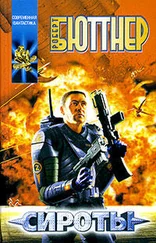

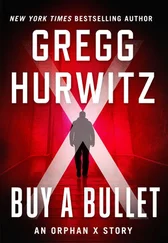
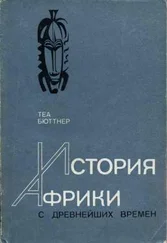
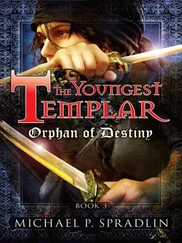
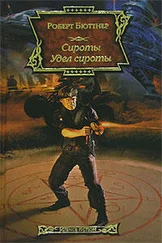
![Дэн Бюттнер - Где живет счастье [Правила жизни самых счастливых людей планеты] [litres]](/books/395574/den-byuttner-gde-zhivet-schaste-pravila-zhizni-samyh-thumb.webp)



